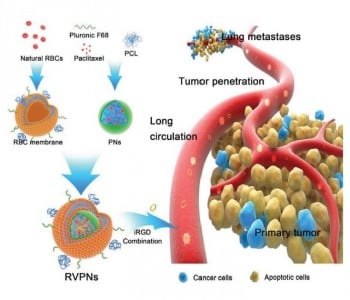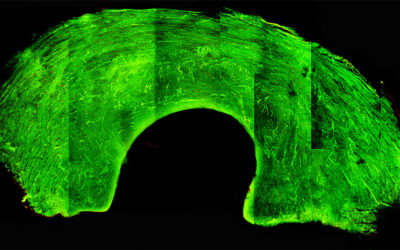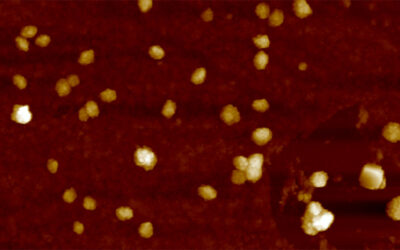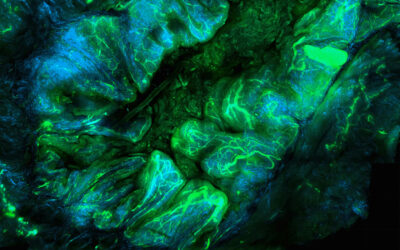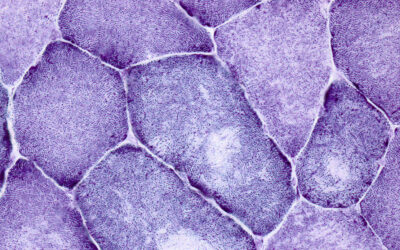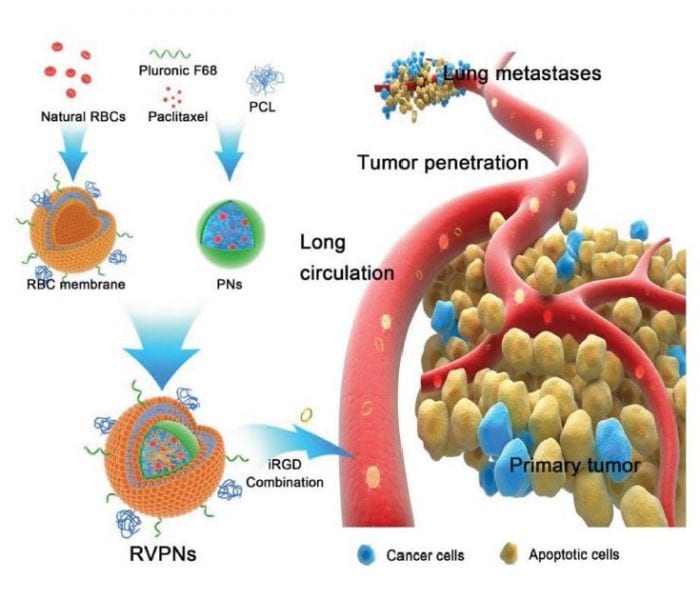 Researchers from China have developed a nanosized drug delivery system with long blood circulation and peptide-enhanced tumor penetration. This system consists of red-blood-cell (RBC)-mimetic nanoparticles (NPs), which are loaded with the cancer drug paclitaxel. In combination with the tumor-penetrating peptide iRGD, the NPs significantly inhibit tumor growth and metastasis formation in a breast cancer mouse model.
Researchers from China have developed a nanosized drug delivery system with long blood circulation and peptide-enhanced tumor penetration. This system consists of red-blood-cell (RBC)-mimetic nanoparticles (NPs), which are loaded with the cancer drug paclitaxel. In combination with the tumor-penetrating peptide iRGD, the NPs significantly inhibit tumor growth and metastasis formation in a breast cancer mouse model.
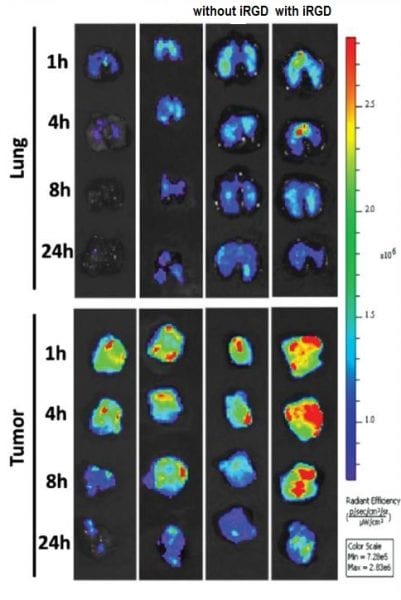 Nanosized drug delivery systems can facilitate the delivery of water insoluble cancer drugs into the tumor tissue. However, previous systems suffered from fast secretion and poor cell permeability of the NPs. This leads to low, ineffective concentrations of the drugs in tumor cells. The innovative structure of the system reported by Su and co-workers overcomes these difficulties.
Nanosized drug delivery systems can facilitate the delivery of water insoluble cancer drugs into the tumor tissue. However, previous systems suffered from fast secretion and poor cell permeability of the NPs. This leads to low, ineffective concentrations of the drugs in tumor cells. The innovative structure of the system reported by Su and co-workers overcomes these difficulties.
The RBC-mimetic NPs consist of two parts: a hybrid polymeric nanoparticle loaded with paclitaxel and a RBC-mimetic vesicle. The vesicle is extracted from a RBC membrane. While the membrane ensures the long blood circulation of the NPs, there is still a need for optimization of tumor-cell uptake. This is realized by combining the NPs with the tumor penetrating peptide iRGD. With its dual effect on tumor growth and metastasis formation, the resulting nanosized drug delivery system is a very promising option to improve therapy effects. If the RBC-mimetic vesicle is extracted from the RBCs of the patient, the system can also be a candidate for individualized treatment.

